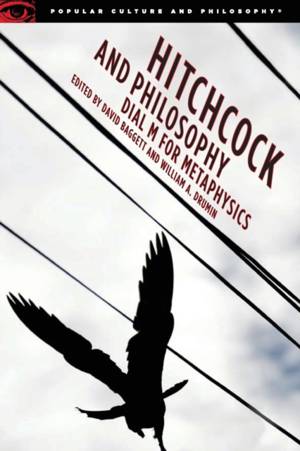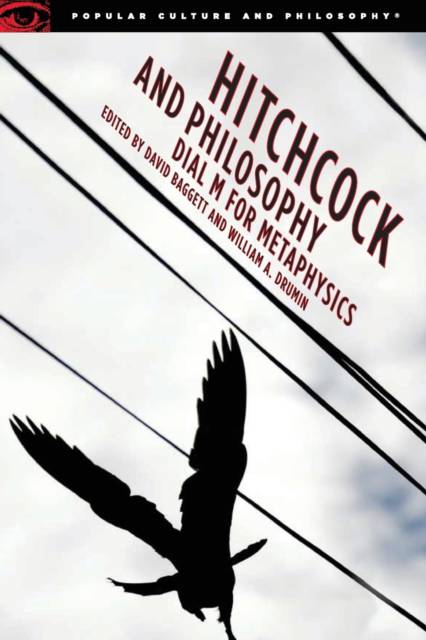
- Afhalen na 1 uur in een winkel met voorraad
- Gratis thuislevering in België vanaf € 30
- Ruim aanbod met 7 miljoen producten
- Afhalen na 1 uur in een winkel met voorraad
- Gratis thuislevering in België vanaf € 30
- Ruim aanbod met 7 miljoen producten
Zoeken
Hitchcock and Philosophy
Dial M for Metaphysics
€ 24,95
+ 49 punten
Omschrijving
The shower scene in Psycho; Cary Grant running for his life through a cornfield; "innocent" birds lined up on a fence waiting, watching -- these seminal cinematic moments are as real to moviegoers as their own lives. But what makes them so? What deeper forces are at work in Hitchcock's films that so captivate his fans? This collection of articles in the series that's explored such pop-culture phenomena as Seinfeld and The Simpsons examines those forces with fresh eyes. These essays demonstrate a fascinating range of topics: Sabotage's lessons about the morality of terrorism and counter-terrorism; Rope's debatable Nietzschean underpinnings; Strangers on a Train's definition of morality. Some of the essays look at more overarching questions, such as why Hitchcock relies so heavily on the Freudian unconscious. In all, the book features 18 philosophers paying a special homage to the legendary auteur in a way that's accessible even to casual fans.
Specificaties
Betrokkenen
- Uitgeverij:
Inhoud
- Aantal bladzijden:
- 288
- Taal:
- Engels
- Reeks:
- Reeksnummer:
- nr. 27
Eigenschappen
- Productcode (EAN):
- 9780812696165
- Verschijningsdatum:
- 8/03/2007
- Uitvoering:
- Paperback
- Formaat:
- Trade paperback (VS)
- Afmetingen:
- 157 mm x 227 mm
- Gewicht:
- 394 g

Alleen bij Standaard Boekhandel
+ 49 punten op je klantenkaart van Standaard Boekhandel
Beoordelingen
We publiceren alleen reviews die voldoen aan de voorwaarden voor reviews. Bekijk onze voorwaarden voor reviews.










